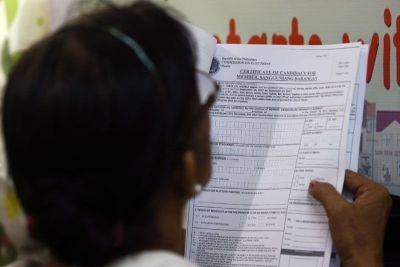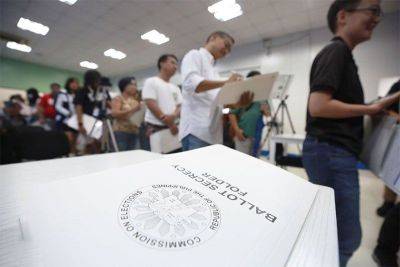Cybersecurity, proposed connectivity measure highlighted in 2025 poll talks
MANILA, Philippines — The upcoming 2025 midterm elections have sparked concerns of stakeholders regarding the country's cybersecurity, as the Philippines continues to be a hotbed of cyberattacks and proposed measures about relaxing the country's restrictions on telcos gain support.
A presentation by the Bagong Pilipinas Media Engagement and Workshop in May found that artificial intelligence and foreign adversaries will most likely target the communications technology network of the government during the election period.
The Philippines’ telecommunication space is crucial for a developing country like the Philippines, as day-to-day operations are starting to involve the use of the internet, according to Richest PH, while the cybersecurity infrastructure is still a concern.
According to cyber intelligence company CYFIRMA, the Philippines is a prime target for cyber espionage activities due to a lack of cybersecurity awareness and underdeveloped cybersecurity infrastructure, especially with the rising tension in the region.
There have been calls in the Senate to elevate cybersecurity as a national concern in the absence of law, noting that the Philippines is prone to cyberattacks.
Intelligent global network Cloudflare recorded an average of five billion cyberattacks per day in the Philippines in the first quarter of 2024, an increase of 28% compared to the prior quarter.
“There should be a sense of urgency because the more that the world is connected, the more that we are prone to cyberattacks. We should be wary of this type of vulnerability in our country," Sen. Sherwin Gatchalian earlier said.
Another area of concern for many, including think tank Stratbase and advocacy network CitizenWatch Philippines, is the proposed Konektadong Pinoy Act or Senate Bill 2699, which stakeholders worry would potentially endanger the Philippines telco space to foreign hackers.
SB2699, if passed, will eliminate the need for a congressional franchise for telecommunication companies, which "diminishes" the regulatory powers of the NTC into mere oversight.
"The Konektadong Pinoy Act proposes to reduce the NTC’s role to that of a mere registrar, stripped of its oversight functions. If







